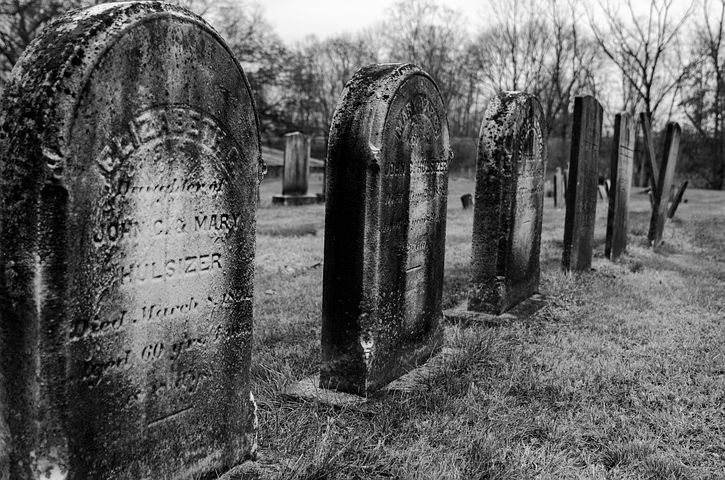It Is Illegal to Enter the Graveyard
Ben Loory
It is illegal to enter the graveyard if you are not dead. That’s the way it’s always been; that’s just how it is. When someone dies, we put them in a coffin and push it through a hole in the gate. And when we come back and check the next day, we can usually see the new grave.
But sometimes it doesn’t work that way; sometimes the coffin just lies there. And sometimes—and this is even worse—it inches back toward the gate. And when that happens, we know what’s wrong: whoever’s in the coffin isn’t dead enough. So then we have to get a stake and a hammer, lasso the coffin, and drag it out.
This happened to me once with my very own mother. No one else would even open the lid. It took me hours of kneeling there, praying for strength, before I did.
And when I finally did lift the lid up—hammer and stake raised in my hands—I gasped when I saw: she wasn’t even there.
The coffin was empty.
My mother was gone.
As far as we knew, this hadn’t happened before—usually it was just the matter of the stake. But this was something else entirely.
Where could she be? someone said.
But none of us knew—least of all, me—so finally, we all just shook our heads. And in the end, we simply poured gas on the coffin, lit a match, and watched the smoke rise up.
I don’t even remember the rest of that day—it was like that smoke became a fog. I have no idea where I went, what I did, or how I even got home.
But that night I found myself in my mother’s room, just standing there in the dark. I was looking at the bed where she used to sleep. Then I looked at the pictures on the wall. And then I found myself walking to the window, staring out at that moon in the sky. And then, as I watched, something like a cloud—something like one— came floating by.
For some reason I thought that cloud was my mother. I know, it doesn’t make any sense. But I did—I was certain, I didn’t have any doubt—so I opened the window and stepped out.
I followed that cloud up and over the hedge, and then across my neighbor’s lawn. It was too high to reach, though I leapt and stretched.
I had to run—the wind carried it on.
I ran and ran through the streets of the town—after my mother, my mother the cloud—until finally I came to the gates of the graveyard.
And they opened, and I went inside.
And once inside, it was like the cloud spread out—it became a mist all around. I didn’t know where to go, or what to do.
And that’s when I heard the song.
It was a quiet little song my mother used to sing to me as a lullaby at night. And I followed that song to an open grave and looked down.
My mother was lying inside.
But Mother, I said, what are you doing here? It’s cold out; you’ll catch a chill.
So I climbed down into the grave to lift her up.
And next thing I knew, we were home.
We were sitting there quietly at the kitchen table—just as we always sit there now. And we’re drinking our tea, and eating lemon cookies—just the two of us, her and me.
And we talk about this, and talk about that, and we look at old picture albums, and remember things that happened to us—or people we knew—and reminisce.
And sometimes at night, when my mother nods off, I push back my chair and go out. And I walk through the streets of the sleeping town.
I walk past the windows, gazing up.
And sometimes I go and I knock upon a door—or I tap on a windowpane. And I stand there and listen, and if I hear something—even a rustle—I tap again.
Hello? I say, in a faraway voice. Remember me? Would you mind if I came in?
And I can hear them then, on the other side, scared.
But then the door creaks back, and I go in.
Ben Loory is the author of Tales of Falling and Flying (Penguin, 2017) and Stories for Nighttime and Some for the Day (Penguin, 2011). His fables and tales have appeared in The New Yorker, Tin House, Fairy Tale Review, and READ Magazine, and have been heard on This American Life and Selected Shorts. He lives in Los Angeles, California.

